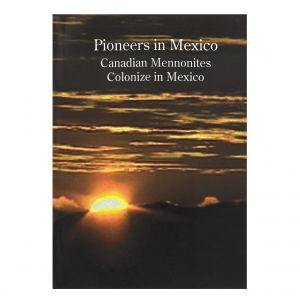The Birth of Anabaptism by Abraham Friesen was produced by MB Communications & Visual Marketing LTD of Winnipeg Canada. This film consists of one speaker (understood to be Abraham Friesen) who teaches about the history of Anabaptism and how it all began. The run time is a short 28 minutes, comprised of video footage of the speaker while complimented with illustrations, paintings, and other imagery throughout. Friesen starts off with questions of why it is important to understand the movement of Anabaptism, and begins to provide some possible answers.
The cause of the reformation is unpacked while highlighting other significant moments of the 13th-16th Century. This topic is explored thoroughly with explanations of the separation of the church, when and why standards were lowered to allow more people in, and how this was viewed by the community. Other points of interest include the ideas of Apostolic Christianity, rethinking structures of the Church, Martin Luther’s influences, and changing conditions within the Christian society. Anabaptist beliefs and ideas are described, including information on the first Anabaptist believers. Historical figures such as Ulrich Zwingli and Balthasar Hubmaier are talked about as well.
The film is simple in its presentation but effective in a way that it gives a distinct timeline of events, and clear ideas in order to understand such a topic.
-Teanna Rozek
2018-08-22
Bibliography
“Anabaptism”. Gameo – Global Anabaptist Mennonite Encyclopedia Online. 1996-2018 by the Global Anabaptist Mennonite Encyclopedia Online. August, 2018. Web.
“The Birth of Anabaptism”. Abraham Friesen. MB Communications & Visual Marketing LTD Winnipeg, Canada. Historical Commission of the Mennonite Brethren Churches of North America. 1989.
